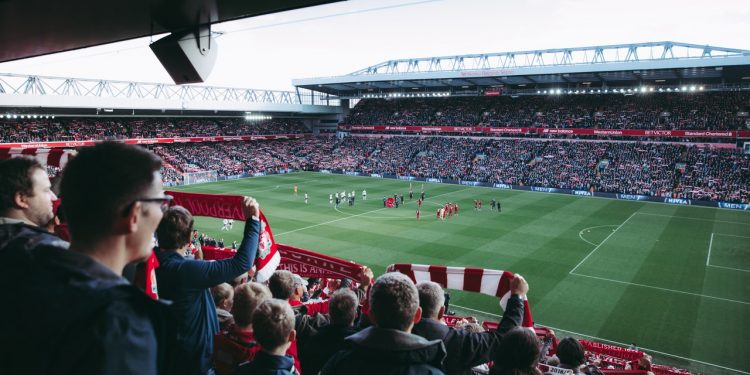The 2019/20 English Premiere League (EPL) finally drew its curtains on Sunday, 26 July 2020.
Spanning almost an entire year, the 28th season was the league’s longest ever, with an unprecedented 100-day hiatus enacted from March till mid-June.
After global sporting events had been put on an indefinite hold due to the COVID-19 pandemic, the league subsequently drew up plans to safely reinstate the season, titled ‘Project Restart’. It officially began on 17 June 2020 behind closed doors but televised.
As its trophy was lifted by eventual champions Liverpool in a vacant Anfield stadium, we marvel at some of the accolades, statistics, and circumstances which made this a remarkable season throughout.
The Champions
Liverpool ended their 30 year hunt for a league title since 1990, and their first in the modern Premiere League era. Beyond the trophy, the Merseyside club boasts a treasure trove of impressive achievements throughout their dispatch.
The league leaders finished the season with a 99-point record, just a point shy of breaking Manchester City’s 2017/18 stronghold, but amassed a major 25-point lead during the season, the biggest ever obtained in English top-flight history. They’ve also pipped City to the most home wins in a row (21), outshining the blues (20) in their 2011-2012 season.
This Liverpool team are also the quickest to win the title in history, with 7 matches to spare, outing both Manchester outfits (5).
Lastly, they’ve also achieved a feat no other team has in any of Europe’s top leagues, boasting 79 points from their first 27 matches to be awarded the best league start ever, a stat befitting of the English and European champions.
The League
The hiatus and eventual restart was a welcome sight for some and saw a fall from grace for others.
Frank Lampard’s maiden season in-charge in the league saw him silence critics and steer Chelsea to a 4th place finish, meaning their position for Champions League football was deservedly secured ahead of their FA Cup final against Arsenal, which they eventually lost. The Gunners plundered for glory in the Cup as their only hopes for European competition, after finishing 8th under Mikel Arteta.
Level in points to Chelsea (but besting in goal difference) were 3rd placed Manchester United, who much enjoyed a spring in form as the only team left unbeaten since the restart (5W2D), with many attributing their success to January capture Bruno Fernandes.
The Red Devils, along with Wolverhampton Wanderers, are also still in the mix for the Europa League trophy, which could see either Ole’s or Nuno’s side possibly come away with a Champions League position should either emerge as champions.
Pep Guardiola’s side finished 18 points behind Liverpool, and despite being runner-up’s, have drawn criticism from pundits and watchers for their unfamiliar erratic form throughout the season.
Leicester City’s hopes of obtaining a Champions League place after finishing 5th were dashed by Manchester City’s successful appeal to overturn their UEFA ban, and re-occupying a Champions League seat, which see the foxes competing in the Europa League instead, alongside José Mourinho’s 6th placed Tottenham Hotspur.
The Pandemic
The league adapted to a variety of changes which were put in place for the pandemic. ‘Project Restart’ saw teams train in social distancing groups of 5, with squads being segregated into allotted training schedules and divided segments of training grounds, with dedicated coaching staff for each session.
Stadiums were allowed a maximum of 300 people at any one time, which meant beyond squad members, club staff, and grounds caretakers, matches were played in front of a barren stadium void of chants and cheering.
An inevitable consequence of this meant home and away games did not replicate the same ambience and mental weight as status quo, but also that watchers of the game on television could opt between ‘simulated stadium ambient’ sounds of cheers, or simply hearing the players’ shouts and screams as they were.
FIFA also allowed a use of 5 substitutes instead of the usual 3, which addressed fitness concerns and workload on players post-restart. Dedicated “red zones”, such as dressing rooms and tunnel/technical areas, were enacted with specific health restrictions, which included barcode scanning and COVID-19 health questionnaires prior to entry.
It remains to be seen how the 2020/21 season, beginning in September will shape up to be and whether the plethora of measures will still be in place/policed, but many grey areas, like the non-policing and non-punishment of players for violating stipulations, as well as post-match embracing and celebrations, will be enforced, if at all.
Beginning 12 September 2020, the season will see West Bromwich Albion promoted, as well as Leeds United’s 16-year return, while Bournemouth, Watford, and Norwich City are relegated to the Championship.














